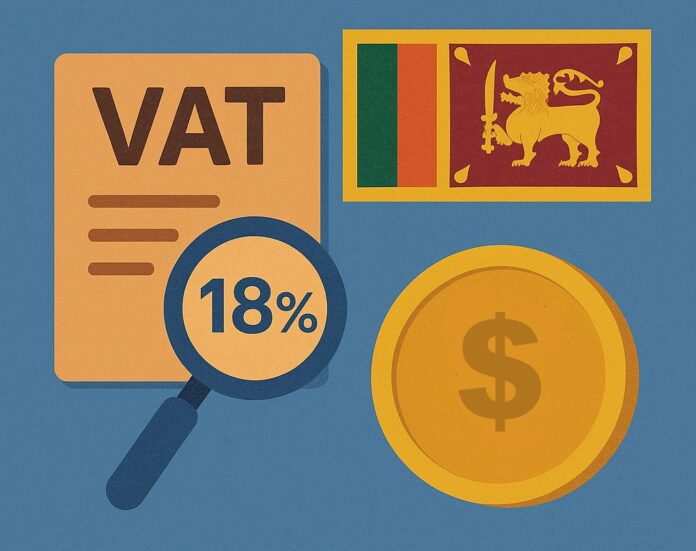Sri Lanka’s fragile path to fiscal recovery has exposed deep cracks in its taxation system. A new World Bank report has slammed the country’s heavy reliance on Value Added Tax (VAT), warning that the steep rate hikes, compounded by subsidy removals, have disproportionately hurt the poorest households.
While VAT has helped boost government revenue, it has also fuelled inflation, raised the cost of living, and pushed thousands deeper into poverty. With the NPPP government preparing its 2026 budget, analysts say the urgent priority should be to shift the tax burden away from the poor and onto the wealthy.
Recent data highlights this stark dilemma. Sri Lanka’s economy grew by around five percent in 2024, largely buoyed by construction and tourism.
Yet the benefits have not been evenly distributed. Poverty, measured at the international benchmark of living on less than US$3.65 per day, still affects nearly a quarter of the population, standing at 24.5 percent.
On the fiscal front, revenue improved significantly: the primary surplus reached 2.2 percent of GDP in 2024, aided by VAT and the withdrawal of exemptions. The country’s tax-to-GDP ratio also climbed from a low of 7.3 percent in 2022 to about 9.2 percent in 2023. Even so, Sri Lanka lags behind many of its regional peers in overall revenue mobilisation.
The cost of these gains, however, has fallen heavily on ordinary people. The World Bank estimates that between 2022 and mid-2023, poverty increased by nearly four percentage points as a direct result of tax reforms and subsidy removals.
The poorest ten percent of households lost about five percent of disposable income, while their risk of falling into poverty rose by almost two percentage points. Rising electricity tariffs and cost-recovery pricing hit hardest, stripping the poorest of already fragile incomes.
Meanwhile, import duties and protectionist taxes on rice, maize and other staples have kept food prices 50 percent higher than in neighbouring countries, punishing the very groups least able to cope.
Despite these realities, Sri Lanka’s policymakers continue to lean heavily on VAT because it is a reliable revenue source. Globally, VAT tends to raise six to eight percent of GDP compared to one or two percent from income taxes.
Yet, without strong exemptions for essential goods, VAT is inherently regressive, forcing low-income households to shoulder a heavier relative burden than wealthier groups. Critics argue that Sri Lanka’s reliance on consumption taxes while allowing loopholes and evasions in corporate and personal income taxes reflects both political weakness and policy inertia.
The World Bank and domestic experts agree on what must happen next. The 2026 budget must prioritise fairness by taxing wealth more directly. Higher income brackets, corporate profits, large properties and capital gains should be brought more firmly into the net.
VAT exemptions must be expanded to shield food, medicine and utilities, while welfare should be targeted at the poorest rather than delivered through blanket subsidies that benefit richer households too. Public sector wage and hiring reforms, along with digitised tax administration, would also reduce inefficiency and improve compliance.
Sri Lanka’s recent fiscal turnaround has been built on fragile ground. If the NPPP government fails to rebalance its tax policy, the country risks achieving macro-stability while entrenching social inequality.
Taxing wealth fairly, protecting essentials, and reforming public spending may be politically challenging, but without these measures, stability will come at the cost of human welfare and social cohesion.
